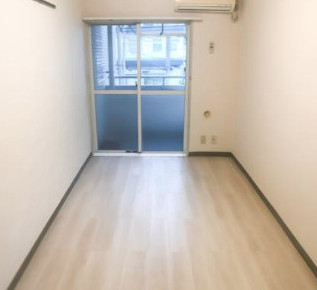You’re finally going to live your dream in Japan. You got the job or you’re visiting on a long vacation. You already have lots of household items or gear and you want to use them instead of buying everything you need in Japan.
You’ve already followed my moving to Japan guide (here) but you’re not sure how to get your comforts of home, hiking gear, extra clothes, skis, or anything to Japan. What about prohibited and restricted items or taking your car.
That’s a lot of questions so let’s look into shipping household goods to Japan. A realistic approach is necessary because Japan is not like your home country.
Apartment size
The apartment I live in is incredibly small compared with the living space I had in the United States (US). You can fit my apartment several times into the normal home in the US and other countries I have visited. A house in the Philippines is considered small but I can still fit my Japanese apartment inside two small rooms of a Filipino’s home.
Why am I talking about this topic on a shipping page? Because people don’t know how much room they won’t have in their Japanese apartment. I can’t ship my lazy boy recliner from back home and expect it to fit through the door. Besides, even if I could get my lazy boy through the door I couldn’t recline without taking up the entire one-room apartment’s living space.
Know your apartment or house size before shipping something to Japan that won’t fit in your home. My apartment is 16 sqm (172 sq ft) and the typical family size apartment is 70 sqm (753 sq ft) with three bedrooms. The average size home in the US is 2,386 sq ft (222 sqm) so don’t think that you can bring all of your household goods to Japan with you.
You’ll need to take a minimalist approach when living in Japan. You cannot buy or bring anything unless you will use it. There is no room for knick-knacks in a Japanese apartment.
Storage
I know storage facilities exist in Japan but in all my travels I have only seen one and it was in Kawaguchi, Saitama. It would be better to move your items into a storage facility in your home country if you don’t want to sell or give away your items that won’t fit in an apartment in Japan.
Shipping Cost
Shipping cost varies depending on where you are shipping from, the destination, type of goods, and shipping method. The more items you want to move the more it will cost. The only cost-efficient way to ship your items to Japan is a shipping container.
Each moving company has different rates and offers different services. Ask several international moving companies for a quote to receive the best price and services that fit your needs.
Prohibited items
As with any country, certain items cannot enter Japan. These items include:
- Any cannabis, narcotics, psychotropic drugs, stimulants and/or stimulants raw materials, opium, opium straw, and opium paraphernalia.
- Designated Substances excluding any substances to be imported for medical use.
- Any pistols, rifles, machine guns, cannons, and their bullets and pistol parts.

- Explosives
- Gunpowder or any other explosive materials. Like dynamite
- Specified substances prescribed in Paragraph 3, Article 2 of the Law on the Prohibition of Chemical Weapons and Control of Specific Substances
- Class I pathogen prescribed in Paragraph 20, Article 6 of the Law of the Prevention of the Infectious Disease and the Medical Care for the Patient of the Infectious Disease and Class Ⅱ pathogen prescribed in Paragraph 21, Article 6 of the law
- Counterfeited, altered or imitated coins, paper money, banknotes, revenue stamps, postal stamps, securities, cards encoded with an unlawful electromagnetic record, and any paraphernalia related to these items.
- Books, drawings, sculptures and other articles that are considered to injure public safety or moral
- Child Pornography
- Articles that infringe patent rights, utility model rights, design rights, trademark rights, copyrights and neighboring rights, circuit layout rights, or plant breeders’ rights.
- Articles which constitute the unfair competition listed in Item 1 through 3, 10, 17 or 18, Paragraph 1, Article 2 of the Unfair Competition Prevention Law (excluding those listed in items 1 through 5, 7, or 9, Paragraph 1, Article 19 of the law)
As for those articles listed in 1 through 8, 11, or 12, the Director-General of Customs may confiscate and discard them or order the importer to ship them back.
As for those articles supposed to be those listed in 11 or 12, the Director-General of Customs shall take the procedure of determining whether those articles fall under the category or not.
As for those articles considered to be those listed in 9 or 10, the Director-General of Customs shall inform the importer that his/her goods fall under the category.
Also, there are articles prohibited for import not only under the Customs Law but also under other laws such as the Plant Protection Act and the Act on Domestic Animal Infectious Diseases Control.
Restricted items
The following items can be imported to Japan duty-free in small quantities.
- Medication – Personal with a prescription, two month supply
- Variety of tobacco – Cannot exceed 500 grams total weight of combined tobacco
- Cigarettes – 400 pieces per adult
- Cigars – 100 pieces total unless other tobacco is included
- Pipe – 500 grams total unless other tobacco is included
- Alcohol – Three bottles not more than 760cc each
- Perfume – 2 ounces
- Non-prescription medications – 24 pieces
- Cosmetics – 24 pieces
Electronic appliances require an invoice
Stuffed animals, furs, rooted plants, straw products, shells, and meats all require a quarantine certificate
Vehicle
A vehicle can be imported duty-free if you are a resident. I do not recommend this because you will need to meet Japanese emission and safety regulation standards and the cost involved is incredibly high. The changes will need to be made in your home country. If the changes or paperwork are not correct/missing import duty will charge a fee.
It’s much easier and cost-efficient to purchase a vehicle in Japan. I recommend using mass transit because the fees for getting a license, car upkeep, and insurance are overwhelming. Also, the traffic in Japan cities can add hours to your travel.
Planning a move
Don’t wait until the last minute to plan a move. The recommended time to plan an international move is two months. Start by tagging everything you want to take then make sure everything will fit in your new home. 
Next, review the guidelines of Japan imports to make sure you’re not taking any prohibited items and check the amount of any restricted items.
Lastly, contact several international moving companies and ask for a quote.
With proper planning and a little patience, your move to Japan will be enjoyable and carefree.
Customs regulations can change at any time, always check for any changes on the Japan Customs website.
Please post any questions about this topic below in the comments section.
If you have any suggestions on moving to Japan please post them in the comment section below.
